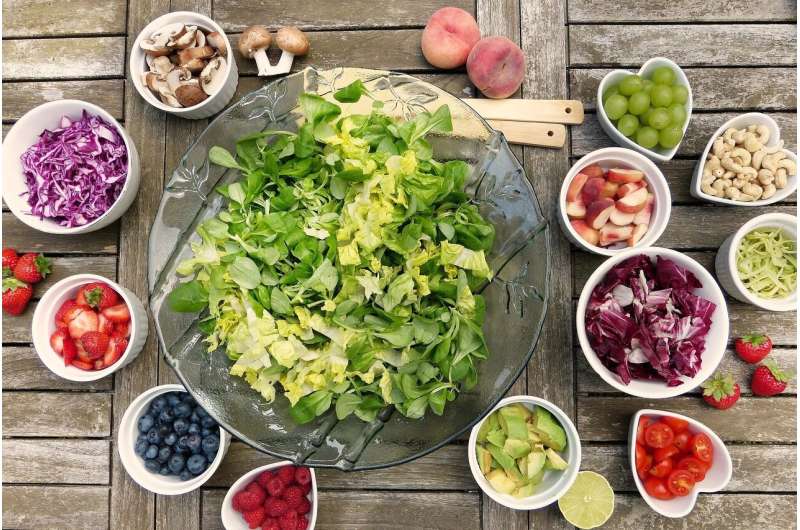This article has been reviewed according to Science X's editorial process and policies. Editors have highlighted the following attributes while ensuring the content's credibility:
fact-checked
peer-reviewed publication
trusted source
proofread
Household food waste reduced through whole-family food literacy intervention

Food waste is a global issue, with the estimated value of wasted food totaling $230 billion CAD in 2023. In Canada, estimates suggest half of the food wasted occurs at the household level, which roughly equals $1,000 CAD per family per year. A recent research brief in the Journal of Nutrition Education and Behavior has demonstrated the feasibility, acceptability, and effectiveness of a family-based food literacy program that promotes meal preparation and food waste reduction.
Lead study author Amar Laila, Ph.D., Department of Family Relations and Applied Nutrition, University of Guelph, explained, "Interventions focusing on families with children could decrease food waste in the short- and long-term by teaching how to prepare, store, and eat leftovers."
The Weeknight Supper Savers food literacy intervention was a four-week program that included a toolkit, an online cooking class, and text messages. Toolkits were delivered to families' homes and included the "Rock What You've Got" cookbook, a collection of 31 easy-to-prepare recipes focused on reducing food waste, specifically from fruits and vegetables, and information on how to reduce food waste and engage children in cooking. The toolkit also included a reusable meal planner, fillable grocery lists, a food storage guide, a vegetable scrubber, an "eat me first" container to promote using older food first, baking soda to keep food fresh in the refrigerator, and a child-friendly knife.
Eighteen families living in Guelph, Ontario, Canada participated in the Weeknight Supper Savers program. These families had children between the ages of 9 and 12 years. All family members were invited to attend an online cooking class lasting approximately one hour, led by a chef and research team member. Post-intervention interviews and pre- and post-intervention surveys and comprehensive food-waste audits were also part of the study.
All mothers and fathers and most children reported being satisfied with the Weeknight Supper Savers program. Additionally, fruit and vegetable-avoidable waste decreased, and mothers reported greater confidence in reducing food waste. Additionally, children's knowledge of best-before dates increased.
Amar Laila commented, "Through this pilot study, we found that families with school-aged children are interested in participating in hands-on activities focused on reducing household food waste. The use of online cooking classes, text messages, and toolkits could be acceptable and effective ways to increase food literacy and decrease food waste."
More information: Amar Laila et al, Household Food Waste Intervention Is Feasible, Acceptable, and Effective, Journal of Nutrition Education and Behavior (2024). DOI: 10.1016/j.jneb.2023.11.004
Journal information: Journal of Nutrition Education and Behavior
Provided by Elsevier




















